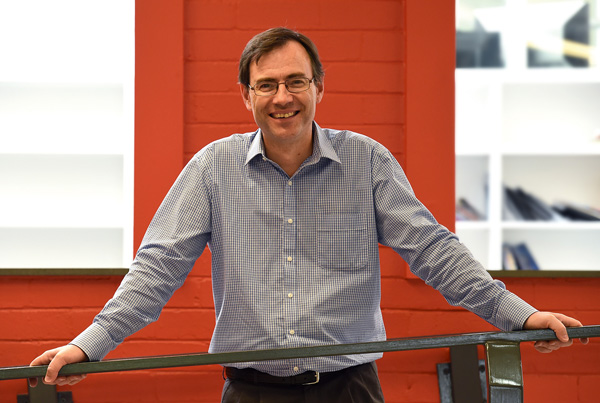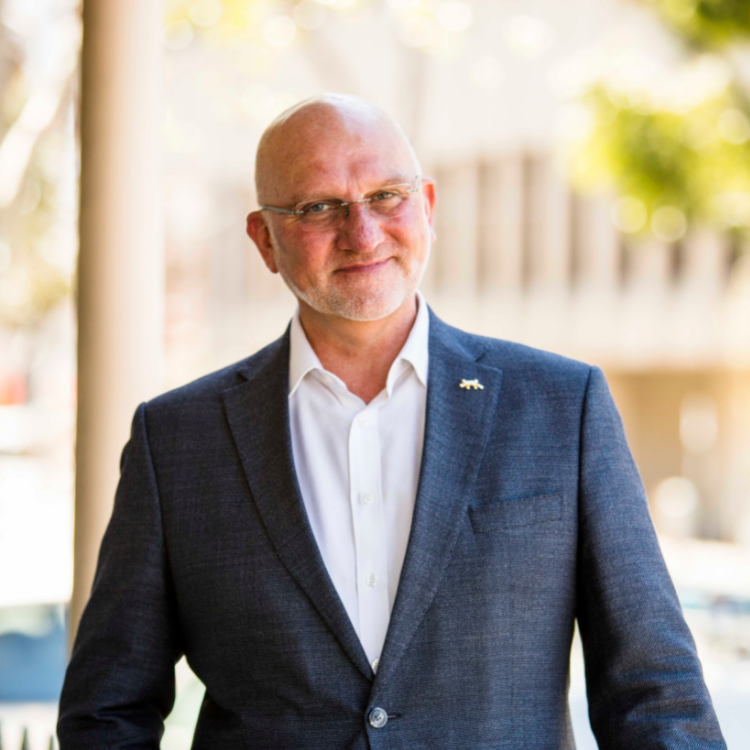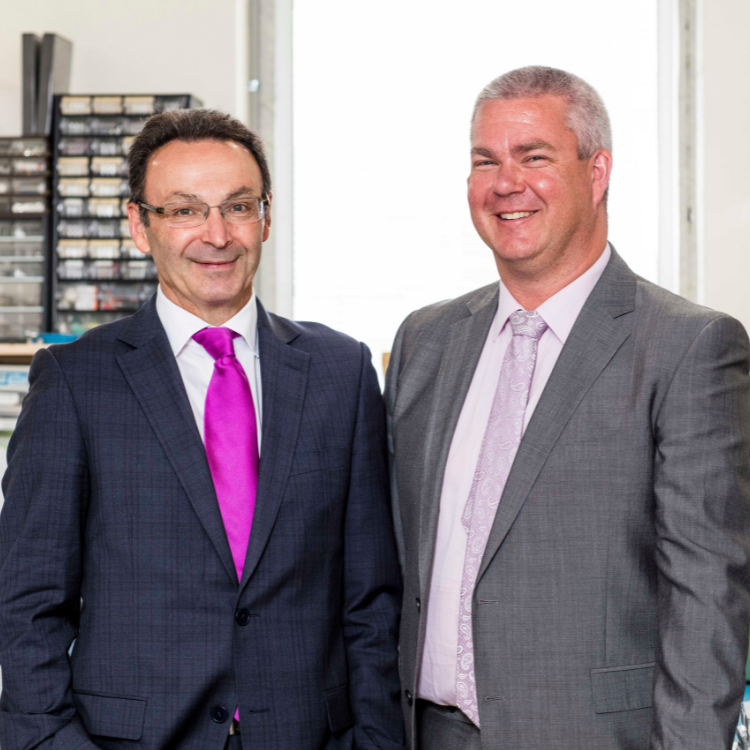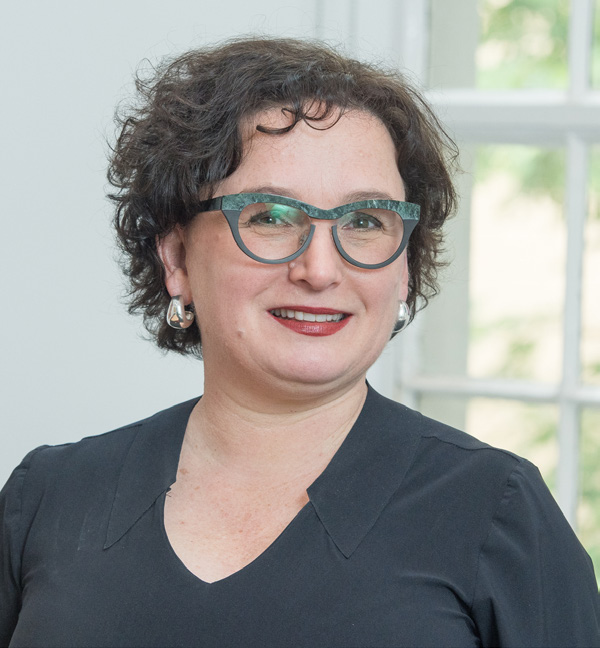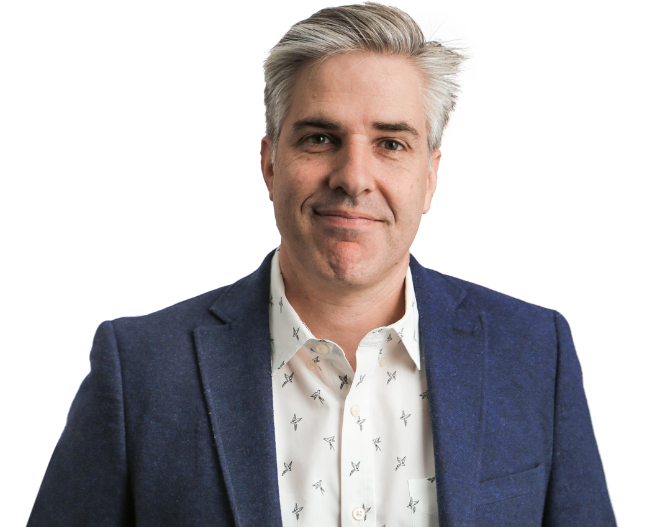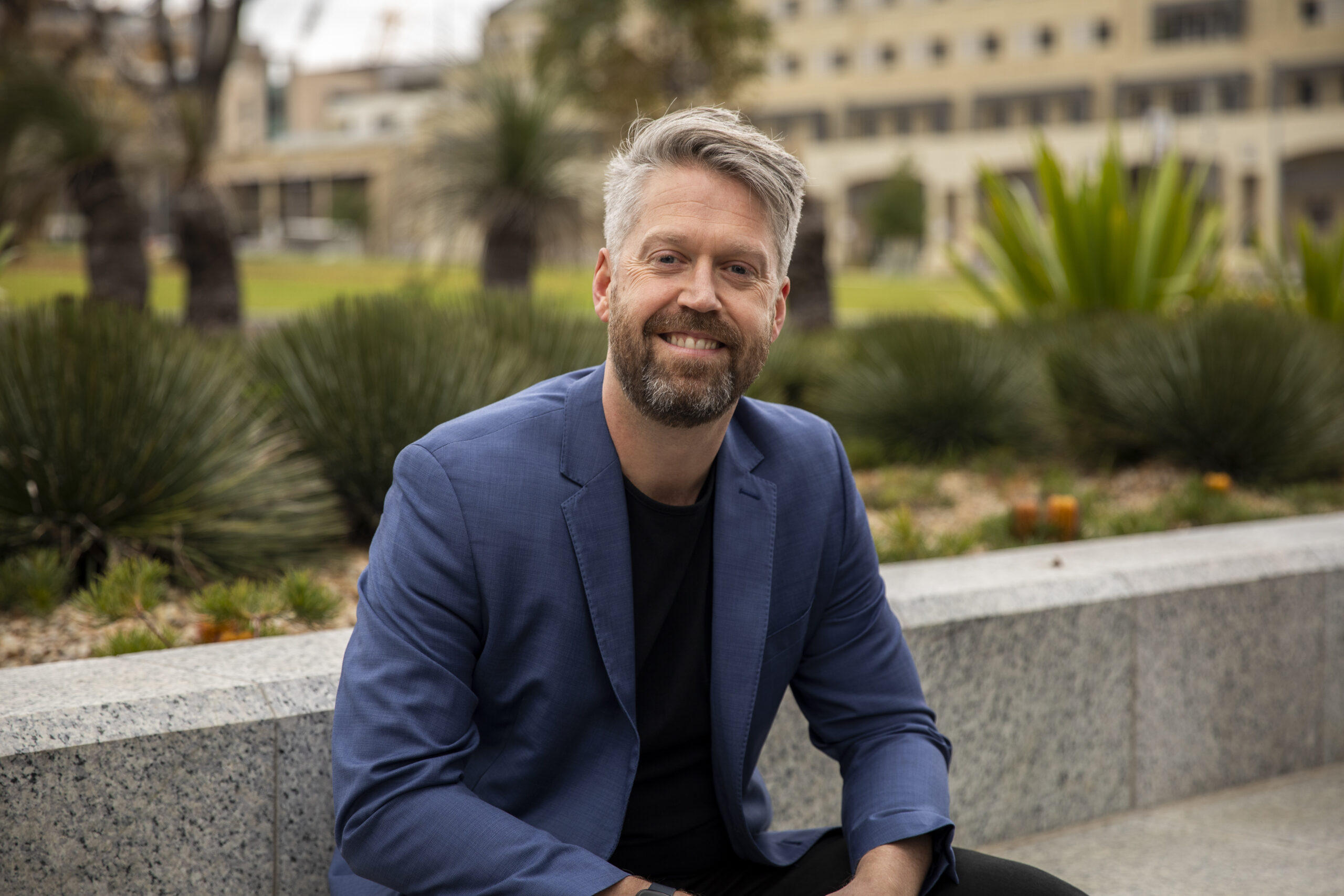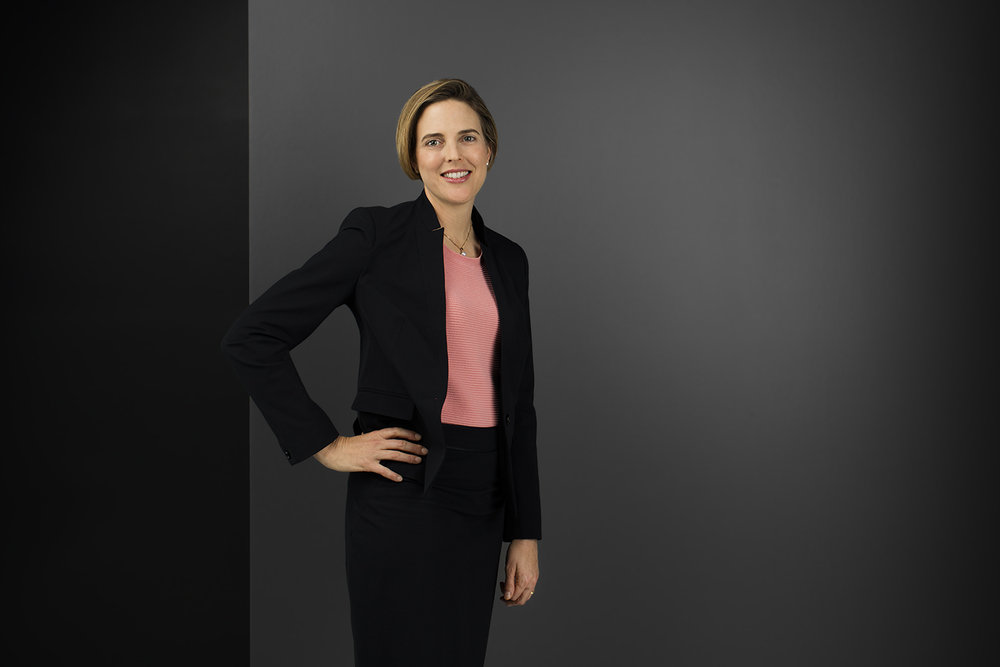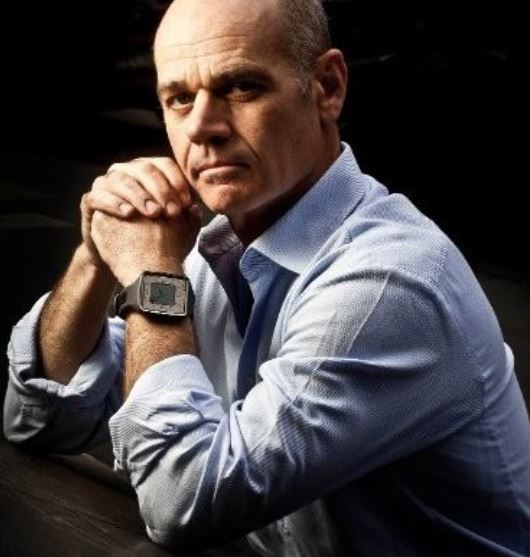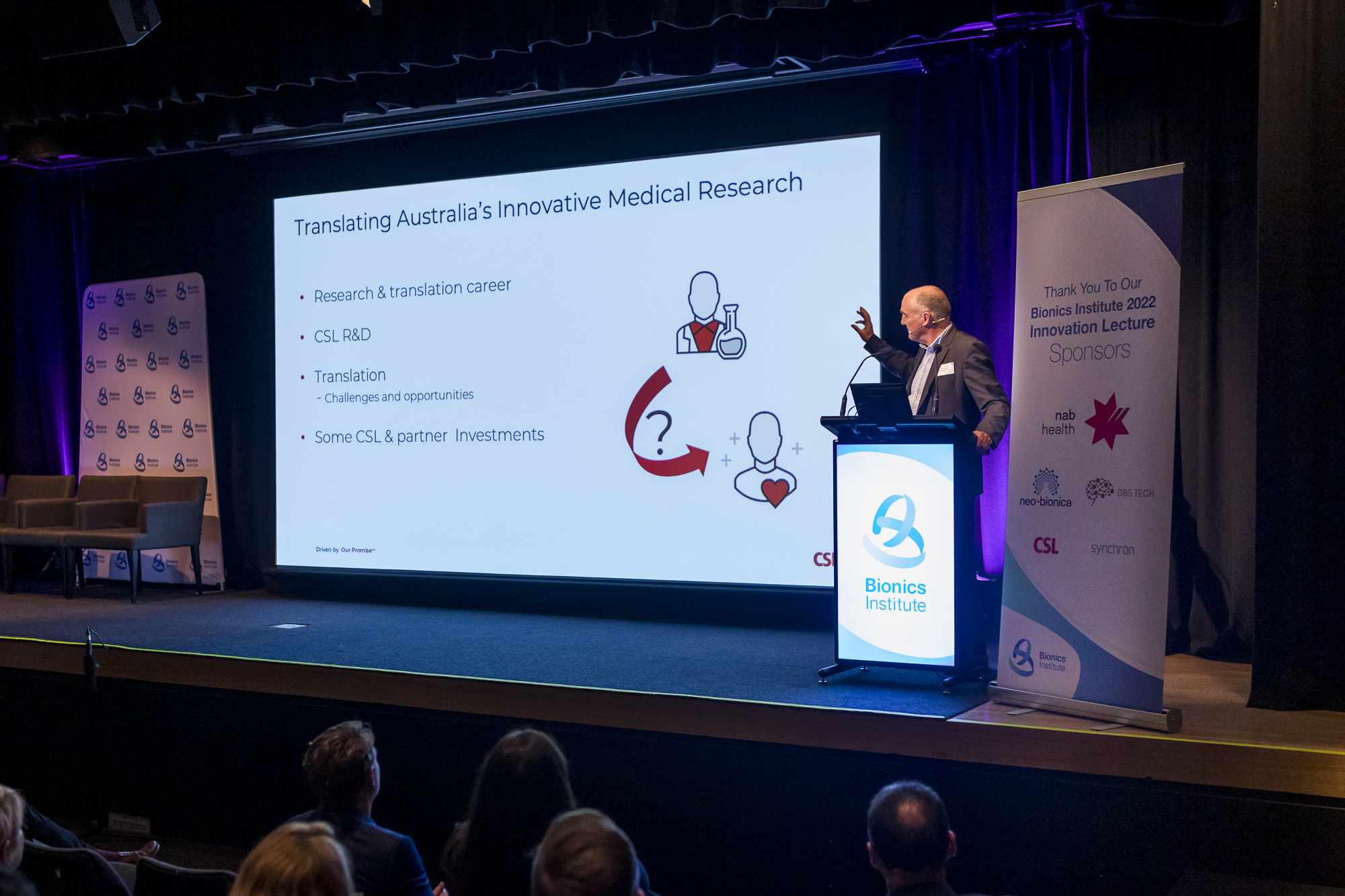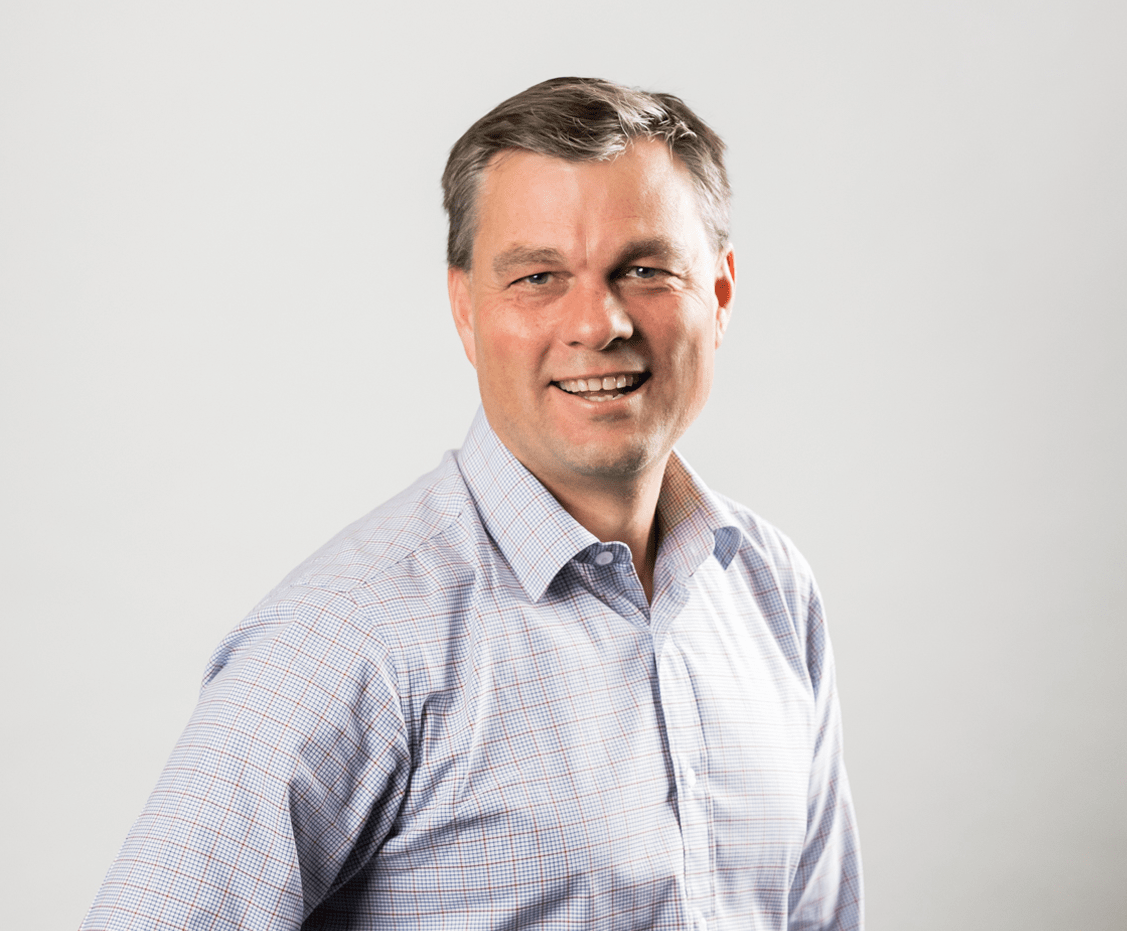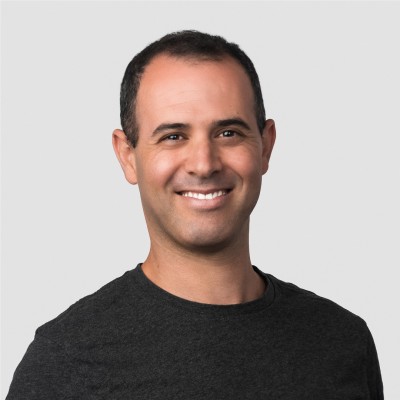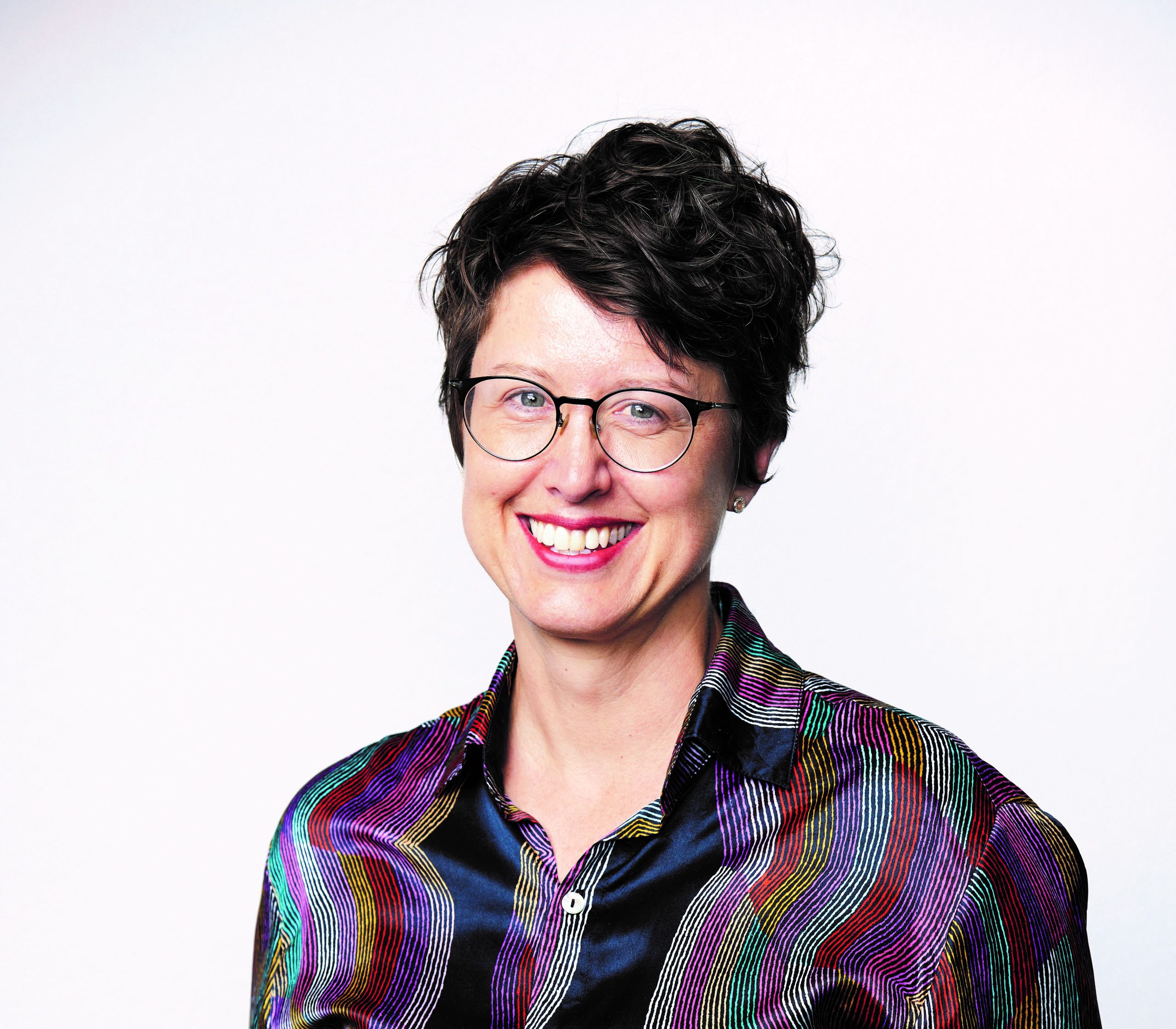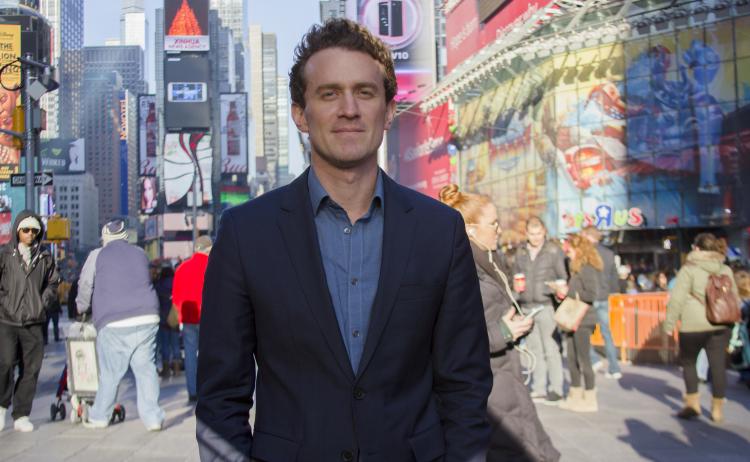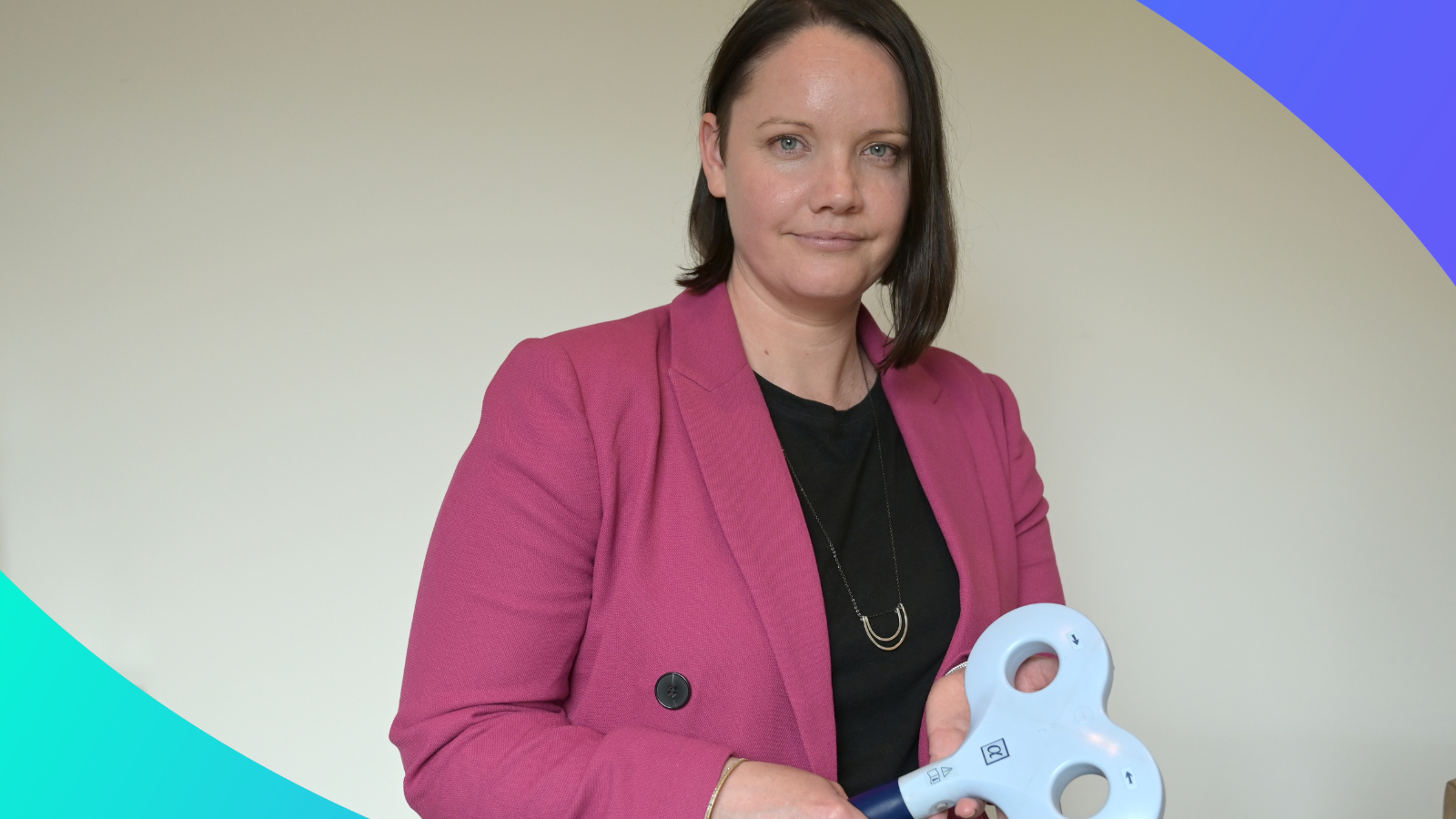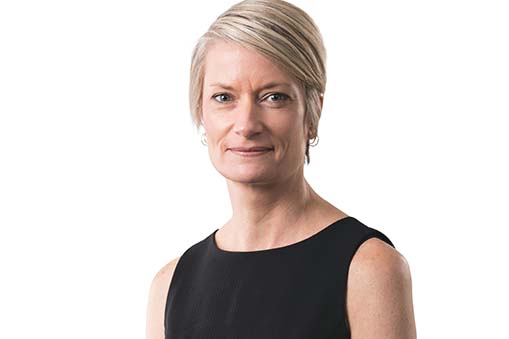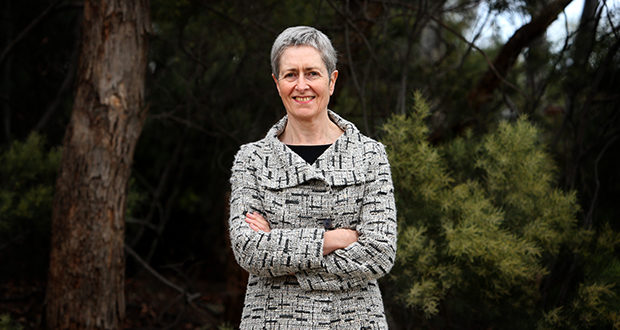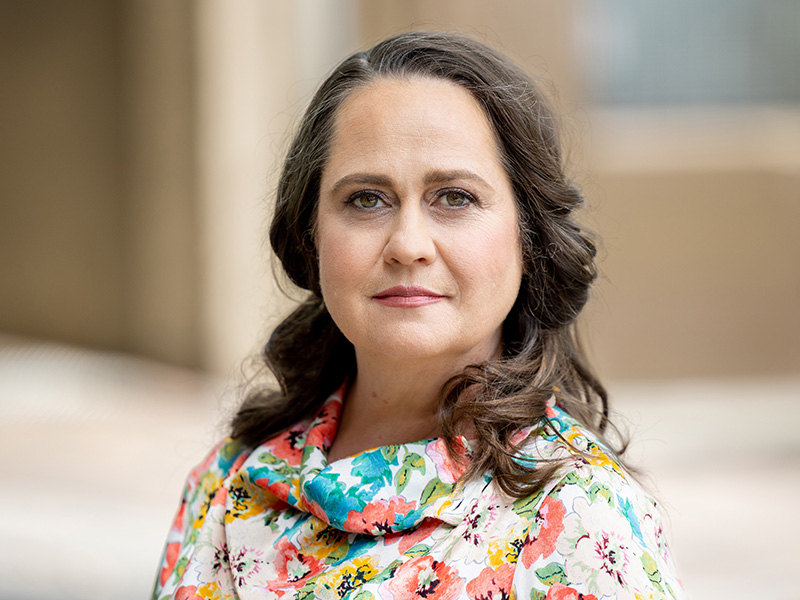Med Tech Talks
Embracing the valley of death with Dr Emma Ball
Dr Emma Ball, Head of Illumina for Startups (Australia, Asia Pacific, Middle East and Africa), challenges this idea on this week’s episode of Med Tech Talks.
Dr Ball helps create and grow start-ups in the field of genomics and is an angel investor.
In this episode you will hear about:
More information:
Dr Emma Ball [00:01:20] Thank you, Rob.
Robert Klupacs [00:01:21] We’ve known each other quite a while, but we’re not going into the background, we’re just going to talk about today. You initially began your career in the lab where we first met. You completed the medical research and then progressed to postdoctoral studies. Now you’re sitting here in front of me with a highly distinguished career in industry with roles at CSL and now Illumina. What prompted you to take make that big jump from academe to industry?
Dr Emma Ball [00:01:47] Well, I always loved the science and the learning opportunities at uni, but always knew during undergrad and postgraduate studies that my future didn’t lie in academia. And that’s for a couple of reasons. Firstly, I’m a generalist. I really enjoy project work and interacting broadly across different subjects in functions in academia. I could see that I would need to become more and more specialised and that really didn’t appeal. Secondly, I personally need the rigour and accountability that a commercial context provides. I like setting clear objectives and milestones linked directly to outcomes in impact and then holding myself and others accountable for for delivering. I love the complexity of delivering to a broad range of stakeholders and understanding their needs, whether it be patients, shareholders and investors, internal colleagues, governments or customers.
Robert Klupacs [00:02:39] And I thought it was just because you didn’t like the supervisor that you had in Monash University. I’m really keen to dive in what you’re currently doing in Illumina now, and particularly in terms of corporate culture, vision and how to harness and develop innovation. What are the major things that you believe the rest of the Australian early development ecosystem can benefit from? And Illumina’s being an absolute giant of the industry, now for the last 10 to 20 years, you’re in a new role. Love to hear your perspective, because for our listeners, you’ve only been in the role in a since May 2021.
Dr Emma Ball [00:03:12] Yep, that’s correct. September 2021. So I guess a little bit of background about Illumina and then I can hop into my role and then, you know, some of the insights that I’ve gained through my years in the industry. Illumina is the world leader in genomics technology. Headquartered in San Diego, we were founded in 1998 at the start of the Human Genome Project and now have expanded to around 10,000 employees serving 155 countries around the world. We’re very highly R&D intensive company and developing innovative technologies used for genetic analysis across a number of different applications, including oncology, reproductive health, rare diseases, infectious disease and non-clinical applications such as agriculture and synthetic or industrial biology. So we’re committed to democratising genomics and unlocking the power of the genome. And to do this at scale, we know that we can’t do it alone and need to partner externally. So that brings me to Illumina for Startups and Illumina for Startups is how we partner with entrepreneurs and VCs to create, launch and grow start-ups working in genomics applications. So Illumina for Startups started in 2014 with Illumina Accelerator in the San Francisco Bay Area, the heart of Silicon Valley. Since then, we’ve rolled out various engines across the world. We opened another Illumina Accelerator in Cambridge, UK in 2020, then started experimenting with different models and third party partnerships such as an incubator in Shanghai in partnership with the VC, Sequoia Capital, China, and then Illumina for Startups Australia, which is part of a broader partnership with the University of Melbourne called the Advanced Genomics Collaboration or AGC. So my role specifically involves heading up both Illumina for Startups Australia and also working across the Asia Pacific, Africa and Middle East regions to accelerate genomics innovation in the entrepreneurial community. So there are two aspects to my role. One is top down ecosystem building, where I work with external stakeholders to influence a number of pillars policy, infrastructure funding and talent development. The second aspect is more bottom up grassroots activities where I work with founders supporting them with initiatives such as sequencing grants, introductions to our Illumina accelerator, technical expertise, business coaching and connections to investors. I’m also the entrepreneur in residence for our partnership with the University of Melbourne and work closely with Illumina’s laboratory in Parkville, the Illumina Innovation Collective, where we give startups hands on technical support. So in terms of insights over my career, I think there’s one thing that keeps coming up in different contexts and it’s really the importance of team. So you need to understand what skill sets and mindsets you need to deploy at different stages of the life of a company or development program. As an individual, you need to be really self-aware and understand your limitations and when to bring in somebody with different complementary skill sets. So in terms of a Startup specifically, this could mean a scientific inventor and founder stepping back from CEO to CEO to bring in somebody with business expertise to lead the company during its next stage of development.
Robert Klupacs [00:06:35] Do you see that very often that last point you’ve made is quite interesting. So I work with lots of scientific founders and they really want to do it themselves, but letting go seems to be a problem. How do you manage that when you’re wrong?
Dr Emma Ball [00:06:47] I think you look for startups and founders that I coachable that have got that high degree of self-awareness, that do understand that it’s better to step back and it’s not necessarily a demotion or a step back. It is really bringing in somebody that can take the company and the opportunity to the next level.
Robert Klupacs [00:07:08] Now, that’s interesting. And just for our listeners, because this is a Med Tech Talks podcast. You were talking about genomics. I know my listeners are very intelligent, but just to give a flavour for the power of what genomics is doing is what some of the startups are trying to deal with your technology.
Dr Emma Ball [00:07:23] Yes. So we have start-ups working in anything from developing novel therapeutics, novel diagnostics, some direct to consumer models, some are working with agtech, clean tech, synthetic biology, anything that requires a deep understanding of the genome or, you know, how cells work, how proteins are transcribed and produced.
Robert Klupacs [00:07:48] It’s unbelievable to think there was only starting in 1998. Quite interesting. You’re an angel investor yourself. We said that at the beginning. What you do when you look at making investments in these companies. One, How did you decide to become an angel investor? And two, how do you go about deciding who gets your money and who doesn’t?
Dr Emma Ball [00:08:06] All right. So how did this come about? So I guess anyone involved in the whole start up community knows that it is highly addictive. So I started out at the start of my career in small biotechs and really loved that sort of chaotic, really busy environment. So once I moved to larger corporate, one of my previous roles, CSL was searching for and doing due diligence on in-licensing or acquisition opportunities. And these were often small biotechs. And again, I loved working with really driven intelligent founders. I’m also an advisor for SBA Australia, where I work with female founders through the SBA Life Sciences Council. So with all of those things, I felt I needed to sort of double down in this area. And so in 2021, I then did the VC Catalyst Course at White Institute, and through that course I met other angel investors and syndicate leaders and joined scale investors in Flying Fox. So in terms of the process of how I invest. For me personally, I prefer to invest in startups that are trying to solve important problems and make the world a better place. And some might call that impact investing. I also support female led studies and female founders through organisations like Scale Investors and SBA Australia that I mentioned because we know that female led start-ups are chronically underfunded and thus represent an untapped opportunity. And if listeners are wanting to read more about that topic, then I can really recommend recent reports by SBA in partnership with both Deloitte and Tech Board. I’m also non-executive director for Startup Shake Up, which works with start-ups in regional Victoria and surrounds and in many ways regional startups represent a similar opportunity to female founders in that they’re an untapped opportunity that are often overlooked by predominantly male metro based investors. So that’s the way I invest and the way I like to have impact. But I guess in a more general sense, when I’m looking at an investment opportunity, I often find myself referring back to what’s called the Six T’s, and I first learnt about these through investor Pedram Crehan, who also works with Stanford Uni and the Wade Institute here in Melbourne. And essentially most VC’s, your use of variation on this theme. So six T’s one team number one. Absolutely. Number one are the founders highly driven, have an intimate connection to the problem that they’re trying to solve. So we’re not looking for founders just running a business that can fund other aspects of their lifestyle. They must be absolutely all in to TAM or total addressable market. Is the market large, growing, accessible strategic. Two: technology, is the technology or product or business model disruptive novel hard to copy for, and I really love this one for traction. Is there evidence that the product or service meets an unmet need and will customers pay for it? So is there evidence of early sales as some of the other proxy measures, such as engagement in pilot studies? And from a I guess a clinical perspective, a proxy could be the ease of recruitment into clinical trials. Is the product meeting an unmet need? And then, you know, in terms of other forms of traction, are there strategic partnerships with organisations that have domain expertise providing third party validation for the technology or concept? Five is trends the what’s happening in the macro environment to make this product or service attractive now and in the future? Are they platforms available today, for example, that enable your idea that weren’t available eight months ago? And finally, terms. So any legal matters that make this investment attractive or not attractive, So does the Startup have rights to foundational IP? Who else is on the table? What terms did they invest on? Do they get priority over us in the event of an exit, etc.? So just to recap six T’s: team, technology, traction, trends and terms. Thank you, Pedram.
Robert Klupacs [00:12:08] They’re embedded in my head now. Thank you for that. Just sort of switching gears a little bit. You know, you’ve been involved now with a lot of start ups. And in Australia we talk about Start-ups having a brilliant idea, being able to secure some seed funding, but then hitting the wall, the valley of death, sometimes we call it the valley of opportunity, but hitting the valley of death. You’ve seen it many times. I mentioned what can we do better to get us through the valley of death at all levels, at the investor level, the founder level, the academic level.
Dr Emma Ball [00:12:41] I’m going to say something highly controversial.
Robert Klupacs [00:12:43] This is a place to say it!
Dr Emma Ball [00:12:46] I actually don’t think there’s anything wrong with the Valley of Death. The Valley of Death is not something unique to Australia. It’s talked about widely across multiple sectors globally, and it’s talked about as a problem to be overcome. I actually think it’s part of the natural part of innovation process. The fact is, not every idea is a good one. Not every team has the knowledge to deliver. Not every product has a market. Not every solution has a problem waiting to be fixed. So if you go back to the, you know, the six T’s, not every opportunity ticks all of those boxes. So there’s a high natural attrition rate in startups, and I think that’s a good thing. The key is to fail early and fail fast. Learn, iterate and move on. So this is really this is really important as there’s always an opportunity cost to what you do. Resources are finite. Every dollar we spend or every activity you undertake represents something that isn’t being done instead. So the quicker you can terminate a project or an unviable activity means that you can turn your attention and investment dollars to something else more worthy.
Robert Klupacs [00:13:51] I think there’s going to be goal that the headline for this topic, I think, and on this podcast when we when we announce it.
Dr Emma Ball [00:13:56] “Embrace the Valley of Death.”
Robert Klupacs [00:13:58] Yeah, exactly. Not wanting to be controversial, but on that topic being controversial, we get a lot of entrepreneurs listening to this podcast and we’ve got some fantastic feedback. A lot of them that were very early on there in the incubator, it’s just about they’ve got an idea and they’re just starting out. You must come across them all the time and what’s the advice you give them? Because as you said before, most of them are going to fail.
Dr Emma Ball [00:14:22] Well, I’m going to plagiarise my colleague from Illumina Accelerator. So Marc Martin Casas, his heads up the Illumina Accelerator in San Francisco, and I think he articulates this advice perfectly in his 2021 article a medium one go all in. “Mistakes are bound to happen. But as long as you keep learning and never repeat the same mistakes twice, you’ll be fine to pick the right team.” There’s a theme emerging here. “Choose a co-founder that fits you professionally and personally and brings a different skill set at the initial stages of a company. More than 90% of the valuation, 90% of the valuation of the company is based on the Cofounding team. Three Raise today, Raise tomorrow. Raise every day made investors early and often. Fundraising is the only job a CEO cannot delegate, and I think this advice is probably even more important today than when Marc wrote the article in 2021 for is go big or go home. Pick a large market that can justify true scientific innovation. Five Design your fundraising milestones carefully. Sow seed and series rounds will mean different things to different types of companies. Likewise, today, with the current headwinds, I think it’s even more important to plan your runway and align with milestones and value inflection points. And then six. Surround yourself with the best and stay in regular communication with them.
Robert Klupacs [00:15:45] Of course we all stating this thing keeps coming back to us that there needs to be greater risk appetite from investors, particularly in the seed capital stage for startups, you’re now across a number of different geographic locations and then you’ve read out there a fair bit from the American model. So how do you think the risk appetite of Australia venture capital compares with venture capital across the world?
Dr Emma Ball [00:16:10] I think more generally as an economy, for too long we’ve happily relied on industries such as property and mining to grow our wealth, the so-called homes and homes. And I think this has led to a really complacent, risk averse culture that’s not sustainable in complex industries such as ours and start-ups that have an inherently high failure rate. We need to embrace risk and accept that not every venture will succeed. But that failure is part of the very process of moving forward. So I think VC’s deeply understand and embrace the risk reward equation and fuel innovation by taking on that high risk at an early stage. So my view is that they’re part of the solution and not the problem at all. So in my mind, it’s a quantity, not a quality issue. We have got some great early stage faces and we need more and we’re certainly seeing that change with new local VC’s emerging and also offshore VC’s investing here. And then interestingly, we’re also starting to see VC’s that previously did not have biotech as part of their investment mandate, but they’re now becoming more interested in our sector and using opportunities with shorter times to market and lower regulatory or developmental risks such as seen by or med tech, where there are lower barriers. Barriers to entry for entrepreneurs and investors say compared to say, biotherapeutics. So I think the whole landscape is changing and evolving, but then looking at other countries risk appetites. Not surprisingly, the US has had a long track record of doing this fantastically well, and it’s tempting to look to places such as Boston or London as templates for us. But in my new role, I’m actually now learning more about vibrant ecosystems closer to home, like Singapore, Korea, Japan, Bangalore, and we’ve got so much to learn and share. And then recently I’ve actually been meeting from parts of the Middle East, a part of the world with many similarities to Australia and could be very informative for our own innovation agenda. So they too looking to diversify an economy heavily reliant on oil and gas and are embracing biotech visions with boldness and urgency. So I think there’s a lot to learn from not only the US, but certainly ecosystems closer to home and probably at a similar stage of development.
Robert Klupacs [00:18:24] We’ve discussed before, and you just gave some wonderful answers about what Australia needs to be doing to improve commercialisation of innovation. But is there anything you want to embellish as anything specific that you’ve seen in your time, times in your career that we could do better and now in particular in a worldwide scale? What are other countries doing that we could perhaps copy?
Dr Emma Ball [00:18:44] Yeah. So, look, I want to start by saying that, you know, despite the challenging economic times, I’m incredibly optimistic about Australia’s future and becoming more confident that we’re leaning in innovation and recognise that it really underpins our future. I think some of the blockers we need to address are actually cultural. We need to challenge that tired, old, tall poppy syndrome that prevents us from celebrating successes and keeps us as keeps us from telling our stories. I also recently heard somebody describe Australia as a very rules based country, and this really surprised me as I think we like to think of ourselves as very sort of laid back larakins. But on reflection, I actually think that person was right. We do look to governments to provide laws and guardrails and incentives and that’s great when it comes to things like providing universal health care and gun control, but less so for entrepreneurship and really encouraging risk taking. So I think I think cultural change is always really difficult. I guess low hanging fruit is really forging greater ties between industry and the academic sector. And I know we talk about this all the time, and I think one way of doing that is to encourage people to be able to move freely between both sectors throughout their careers and be able to operate in both worlds. At the moment, once you leave academia for industry, it’s a one way street and I don’t see many people in academia with industry experience. So here we have these two sectors wanting and needing to work more closely together, but not really knowing how to do it. Both speaking different languages don’t have an appreciation of the objectives of the other party or the unique value that the other brings to the partnership.
Robert Klupacs [00:20:25] So in looking back, looking at your career, what would you say to a young, Emma Ball, what would you say to her?
Dr Emma Ball [00:20:32] I’d say two things, and I think this is sort of general career advice, not necessarily related to the world of commercialisation, but one if you can’t see a clear career path now, pursue your interests first and then the path will emerge either organically or through your own creation. And number two, don’t play it safe. Don’t wait so long to embrace risk or pursue unusual paths. It’s okay to be a misfit.
Robert Klupacs [00:20:57] You are anything but a misfit. Emma. This is my last question. So in this series, we’ve been trying to highlight the role of mentorship as having the success of many of our guests and the role of mentorship generally. Who were your mentors and what was the key lessons they taught you?
Dr Emma Ball [00:21:14] So I think it’s really important to distinguish between the concept of mentorship versus sponsorship and to be honest, I’ve always struggled with the process, perhaps not the concept of mentorship for myself at least. I guess I’m quite transactional in that respect. I’m far more comfortable meeting somebody for a one off coffee to discuss a particular topic or ask for specific advice rather than setting up an ongoing relationship upfront with no clear agenda. On the flip side, I’ve been really lucky to have had a number of sponsors or advocates throughout my career who have helped put me forward for challenging roles or projects, often seeing something in me that I was unable to see at the time, at the time, and I don’t want to try and name them personally as I’m bound to leave somebody out. I think the other thing is the concept of peer mentorship, and I’m privileged to be part of a group of peer mentors, and this has been really invaluable. We’re a small group of people who have met through industry events, and we now get together regularly over drinks or via Zoom to chat about things happening in our work work lives. And so under house rules, we offer each other a sounding board, provide advice, help with negotiation tips, or just listen when we need to vent or share when we’ve missed something really badly. So this group gives me a really solid foundation and confidence in my professional life. They’re also an amazing group of successful and accomplished women who have achieved great things in their careers, and the honesty with which we communicate is so reassuring in that it shows that nobody has all the answers and we just all making it up as we go along. And I wish I could have shared that with my youngest self, who would previously have looked at these senior woman women like that and be in or as it seemed that they’d achieved the unattainable and had it all worked out. But it’s not like that at all.
Robert Klupacs [00:23:02] Emma We’ve reached the end of our podcast today and I thank you for giving us your time and we’re sharing your insights into the world of commercialisation and what Illumina is now doing for the rest of Australia. And in particular your thoughts on these and other great insights that you gave us about how we can improve innovation in Australia? To our listeners, I hope you enjoyed listening and I look forward to introducing you to our guests in future podcasts. There are links to everything we talked about in the show notes and we look forward to welcoming you next time.

Dr Emma Ball, Head of Illumina for Startups Australia, Asia Pacific, Middle East and Africa
Listen to other episodes of Med Tech Talks here


